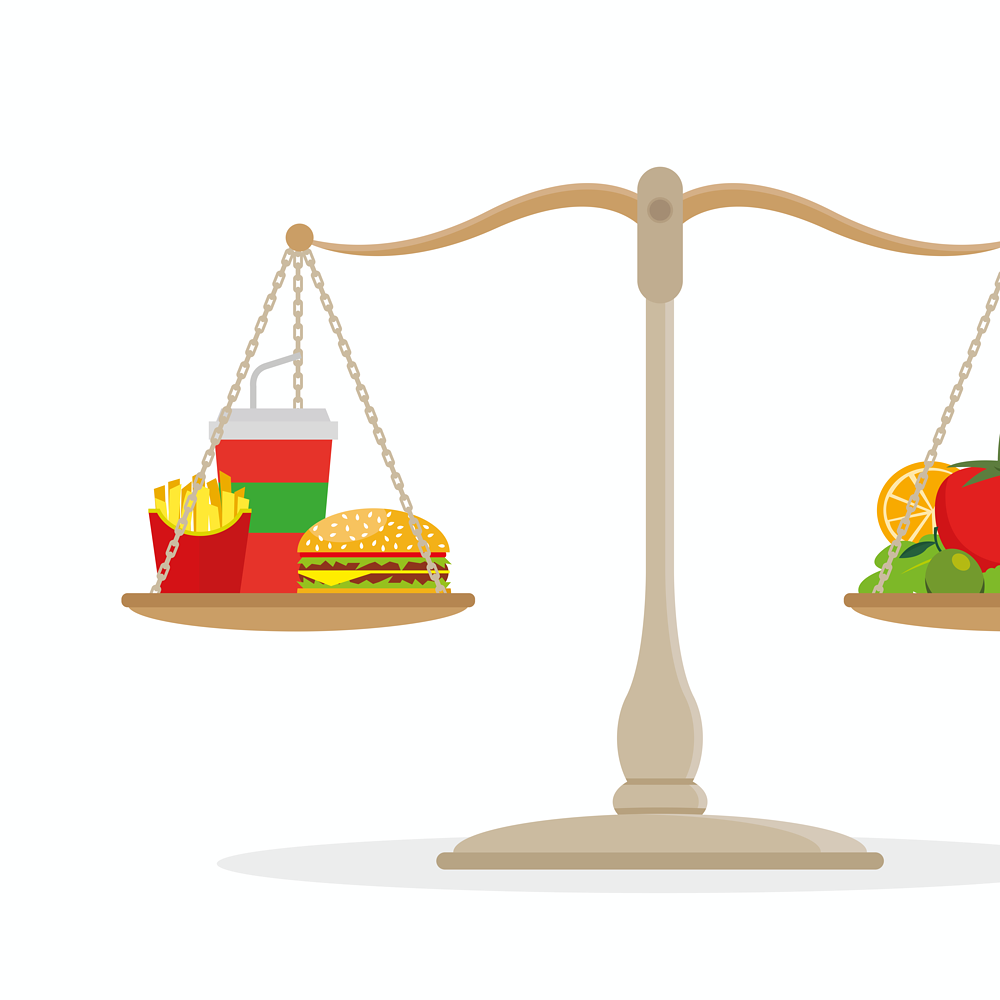Calorie labelling regulations now cover more menus – will this help or hinder efforts to improve the nation’s health?
Mandatory calorie labelling was this month extended to all restaurants, cafes and pubs with more than 250 employees.
Jo Churchill MP said the move was “to make it as easy as possible for people to make healthier food choices for themselves and their families”.
But will counting calories make us healthier?
Stripped of any detail, calories mean very, very little.
What are calories?
A calorie is a measurement of energy. More precisely, a food calorie is the energy needed to raise the temperature of 1kg of water by one degree Celsius.
But calories are not a straightforward indicator of how healthy a food is. That’s what Dr Giles Yeo, geneticist and author of Why Calories Don’t Count, is keen to point out.
“We may worship the calorie,” he says, “but we eat food. We don’t eat calories.” He describes calorie counting as a “blunt tool” that ignores the quality of food you’re eating.
Calories do have their place, he says. They can be helpful when comparing different quantities of the same food. For example, 200kcal of chips is double the portion of 100kcal of chips.
Also, calorie labelling does dissuade people from indulging in high-calorie treats with a success rate of about 8%, according to a recent study by Crockett et al.
Calories and nutrition
But trouble arises when we use calories to compare different types of foods, for example 200kcal of chips with 200kcal of salmon.
“When we eat food,” Yeo explains, “our body works harder or less hard to pull the calories out, which is why it does make a difference if you’re eating a carrot, a doughnut or a steak.
“Protein is chemically the most complex of our three macronutrients, so a calorie of protein makes you feel fuller than a calorie of fat, than a calorie of carb, in that order.
“The reason behind that is a) protein takes longer to digest because it’s more complex, complicated, and b) it takes more energy to metabolise.
“So for every 100 calories of protein you eat, you are only ever able to extract and use 70 calories.
“Thirty per cent of the protein calories you eat is spent in handling protein, and therefore protein makes you feel fuller, so food that has more protein makes you feel fuller and is a higher-quality food.
“The same effect is seen with fibre, except we can’t digest fibre at all, but it has the same effect of making us feel fuller because it travels through our gut, and it also slows the release of carbohydrates from food.
“Ultra-processed foods are inherently lower in protein and lower in fibre, because of the processing that it has gone through, and they are usually higher in salt, sugar and fat.”
ultimately fosters a poor relationship with food
Yeo wants to see food labels carry information on amounts of protein and fibre, as well as sugar.
“Clearly we need to eat less if we want to lose weight,” says Yeo. “There are no two ways about it. It’s physics. But what we eat matters more than the calories.
“Stripped of any detail, calories mean very, very little.”
Low calories: better food?
Registered nutritional therapy practitioner Kate Delmar-Morgan says calorie counting “ultimately fosters a poor relationship with food” because it’s biased against high-fat foods and in favour of starchy and sugary replacements.
“There are many foods,” she says, “which are lower in calories but may be less healthful than their alternatives.”
“Take reduced-calorie, processed biscuits for example. They may not contain many calories because they’re low in fat, but they will likely contain lots of sugar to compensate — less fatty foods don’t taste as good!
“This would mean these biscuits could be relatively low in calories but high in sugar and therefore detrimental for blood glucose and inflammation.
“Large enough quantities could cause metabolic changes like weight gain and insulin issues.”
Calorie counts could, Delmar-Morgan says, “dissuade a customer from choosing a healthier option”.
The bottom line
There are a host of other reasons why we can’t trust calorie counts; accurate calorie maths is tricky and flawed, for instance, and recommended daily calories fail to take into account personal difference.
Counting calories is a simple way to judge a food’s energy content, but doesn’t tell us much else. Although numbers may be easy to understand, they hide nuance and can create the illusion of health where little exists, at the expense of good, nutrient-rich whole foods.
Reference
- Crockett RA et al (2018). Nutritional Labelling for Healthier Food or Non-alcoholic Drink Purchasing and Consumption, Cochrane Database Syst Rev. 27;2:CD009315, cited in Yeo G (2021) Why Calories Don’t Count: How we got the science of weight loss wrong, Orion Spring.
This article was extracted from the spring 2022 issue of Optimum Nutrition. Sign up or log in to read the full article via ION’s free digital magazine
Enjoyed this article?
Learn about insulin resistance: the hidden epidemic driving modern day disease
Enjoyed this article?
Learn about the health benefits of oranges
For articles and recipes subscribe to the Optimum Nutrition newsletter
Discover our courses in nutrition






